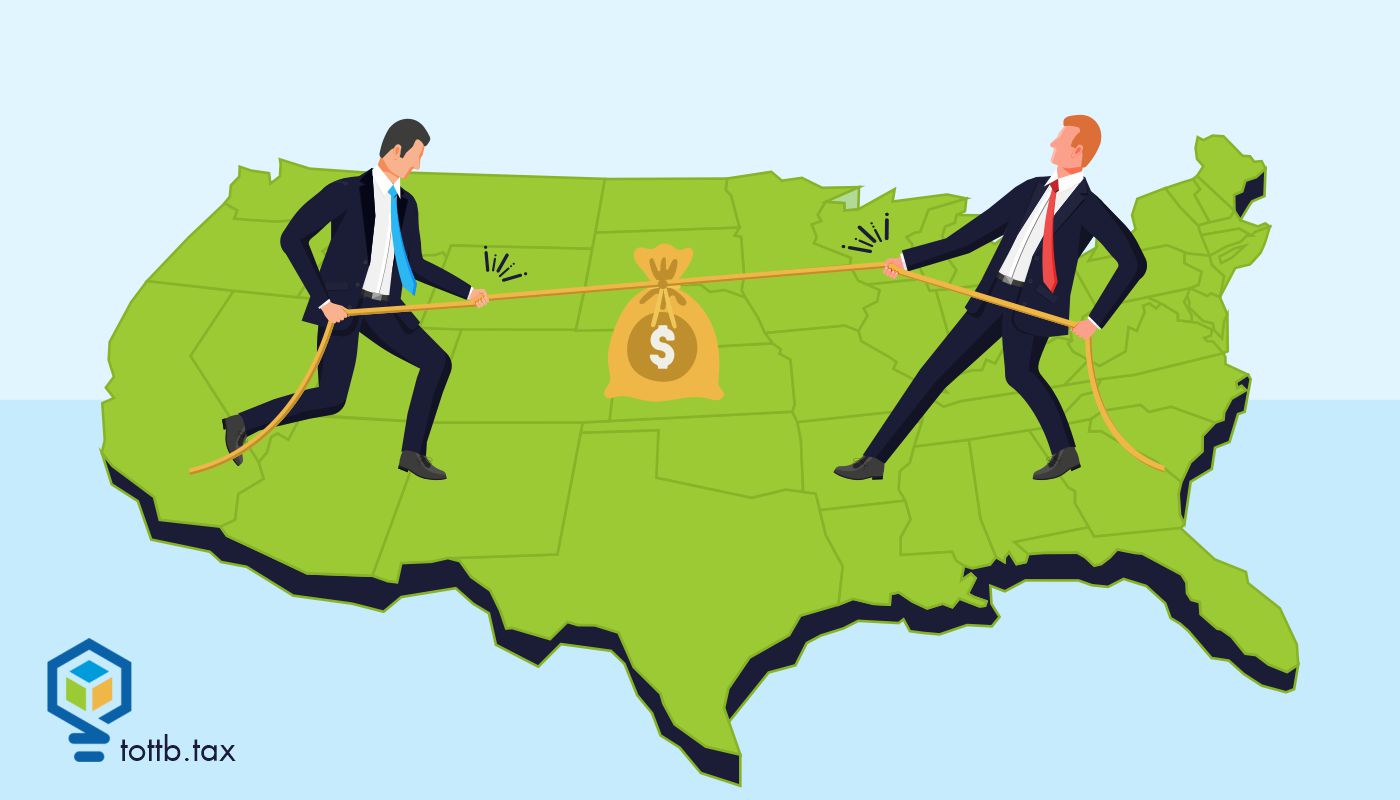
At Around the Tax World, you can find out all about what’s going on in the wonderful, worldwide world of tax. Every month, we’ll feature a few mini-articles on what’s been going on in the world when it comes to tax, and fully available for viewing even if you don’t have a subscription.
If you wish to subscribe and gain access to all articles on the site, be sure to check out the benefits of doing so here!
Check out what’s happening all around the world of tax!
In The Headlines
- U.S.-Canada trade talks continue as Canada opts to drop its digital services tax. Canada had previously planned to introduce a 3% tax on domestic and foreign technology companies, applied retroactively to 2022. This levy would have affected American tech giants like Amazon, Google, and Meta. The first due date was set for June 30th of this year until President Trump’s recent announcement that he would be stopping all trade discussions with Canada in response to this tax. Canadian officials who previously said they would not pause the tax under pressure from the U.S. are now expressing a willingness to renegotiate in order to boost the economy and increase job creation for Canadians. Though several European countries also have digital services taxes, none have implemented them retroactively. The retroactive taxes alone amounted to about $2 billion, and U.S. companies protested that the move specifically targeted them.
- Home Depot buys GMS for $4.3 billion, looking to expand its customer base. The purchase points to Home Depot’s ambitions to become a top choice for contractors, electricians, roofers, and other professionals in the home construction and remodeling arena. GMS specializes in items like ceilings, drywall, steel framing, and similar products. This decision comes as DIY-related sales have been dropping. Many see a link between lower sales and higher mortgage rates—resulting in fewer new homes being purchased and renovations being delayed. GMS was bought under Home Depot’s subsidiary, SRS Distribution, which was Home Depot’s largest acquisition to-date with a price tag of $18.25 billion. SRS Distribution sells supplies to landscaping, roofing, and pool professionals among others. The purchase gave GMS a boost in the stock market with shares increasing by more than 11%. Home Depot’s stocks remained about the same.
- Meta’s hiring spree is increasing tensions with competitor OpenAI. Founder and CEO Mark Zuckerberg has poured $14.3 billion into the data-labeling startup Scale AI and brought Scale AI’s founder Alexandr Wang onto the Meta team. Zuckerberg also plans to hire Nat Friedman and Daniel Gross, former CEOs at Github and Safe Superintelligence, respectively. In addition to these heavy hitters, Meta is also developing its “AI dream team” by recruiting new talent—including eight senior researchers from OpenAI. OpenAI’s CEO Sam Altman is reportedly pushing back by initiating conversations with those who left, reevaluating their compensation, and weighing other ways to reward and retain talent. Meanwhile, Meta has also reportedly increased its capital expenditures range for the year to between $64 to $72 billion to invest more in data centers and related hardware. Though Meta is currently using AI across its platforms, the tech giant is viewed by many as trailing behind when it comes to building the fundamental models used by developers.
What's New In The Tax World?
Trump’s megabill continues to prove controversial—including forceful pushback from Elon Musk
The “Big, Beautiful Bill,” as it has been dubbed by its backers, narrowly passed the House, faced significant revisions in the Senate, and struggled through days of voting in the Senate in an attempt to reach a July 4th “deadline” initiated by President Trump. With the constant changes to dozens of provisions, the average taxpayer can hardly keep track of what’s still on the table.
What are the major points of debate that have made the road to a new budget so long and rocky? The cost of the overall bill has been a cause for contention among Democrats and Republicans alike. A recent estimate said that the changes to taxes and spending would decrease federal revenue by $4.5 trillion but only decrease spending by $1.2 trillion over the next decade. This leaves the U.S. with a $3.3 trillion uptick in national debt. The hefty price tag has been a major reason for opposition within the Republican Party.
The specific spending increases and cuts are also a source of debate. Both the House and the Senate have proposed funneling $169 billion into the Department of Homeland Security, which would more than double its current budget of $68 billion. This funding is expected to primarily go toward more deportation agents and new detention centers—a topic of intense contention. Meanwhile, the bill looks to cut $1.1 trillion in Medicaid benefits, which is estimated to result in 11.8 million people losing health insurance.
The new bill also focuses on tax cuts, particularly the extension of Trump’s 2017 tax cuts. Though this was a long-expected move with a Republican president and congressional majority, many of the tax provisions have been hotly debated even within the GOP. Key changes include cutting clean energy credits, keeping the state and local tax deduction cap in place, and adding new tax exemptions for tips and overtime pay.
A major critic of the megabill is former presidential advisor Elon Musk who labeled it a “debt slavery bill” on social media. Musk also publicly vowed to leverage his wealth against any Republicans who voted in favor of the bill and work against their reelection in the next primaries. Within Congress, North Carolina Senator Thom Tillis has also openly opposed the megabill and recently announced he will not seek reelection in 2026 after Trump threatened to work to replace him in the next primary.
State-By-State Updates
- Illinois sees a slew of mid-year changes to its taxes and other laws. One of the broader changes is that the state’s gasoline tax rose by 2.69%, increasing the overall tax to $0.483 per gallon. The diesel fuel tax will also rise to $0.558 per gallon. Illinois uses the Consumer Price Index to gauge the impact of inflation and decide how much to raise its gas tax each year. The state is also introducing a tax of $0.25 per sports bet placed. The tax will double to $0.50 per wager after 20 million wagers have been placed. Companies like Airbnb and Vrbo will also have to collect the Hotel Operators’ Occupation Tax. Short-term rental properties were previously exempt from this tax. Lastly, tobacco products, vaping pens, and nicotine gum will now be taxed at 45% of their wholesale price.
- Maryland’s new tax laws impact everything from income to cannabis to technology services. The Old Line State introduced 300 new bills effective on July 1st, a number of which impact state taxes. The headliner is the Budget Reconciliation and Finance Act of 2025, which looks to increase revenue by $2 billion in 2026 through taxes and spending cuts. Maryland started the year with a $3 billion gap in its budget, and these changes are intended to close that gap. One major change is the 3% tax increase on the sale of informational technology services, such as cloud storage, computer software design services, cryptocurrency mining, data entry, data processing, media streaming data storage, and many more. This tax alone is expected to raise over $480 million, though critics of the tax worry that it will drive tech businesses out of the state. Maryland is also introducing higher income tax rates for the top income brackets and higher taxes on cannabis sales, mobile sports wagering, and vehicle emissions inspections.
- New taxes in New Jersey could hit smokers, gamblers, and sellers of multimillion-dollar properties. The state is looking at a number of new taxes to support its proposed $59 billion state budget. New Jersey lawmakers already increased taxes by over $1 billion last year to sustain its highest-ever annual budget, and this year, they are again looking at a $1 billion gap to cover spending goals. To help increase revenue, state legislators are also looking at a higher fee on properties selling for more than $2 million. The new bills also include higher taxes on online gambling, online sports betting, cigarettes, and liquid nicotine, most often used with vaping devices. New Jersey also plans to divert over $550 million from its debt-relief reserve to cover annual spending.
- Pennsylvania cuts a tax deal with Amazon to bring its $20 billion data centers to the state. The ecommerce giant plans to build two data centers in the Keystone State, which officials hope will generate thousands of jobs over the next ten years. To encourage the investment, Pennsylvania introduced a sales tax exemption for Amazon on key equipment to build their collections of computer servers. Critics of the decision say that the state has not weighed the full cost of the large volumes of electrical power and water these data centers need. Some predict that electricity supply will decrease and electricity prices for the average consumer will spike. Supporters hope that Amazon or similar companies will continue to build in Pennsylvania, drawn in by the tax incentives. New jobs that could result from the data centers range from high-tech roles to construction jobs to security and landscaping work.
Tax Planning Tips
How might the new tax and spending bill change your income tax bracket? A major emphasis of the Republican-backed tax package is the revival of the expiring provisions from Trump’s 2017 Tax Cuts and Jobs Act (TCJA). Included in this is a move to make the TCJA tax brackets permanent. Currently, the U.S. has seven marginal tax rates: 10%, 12%, 22%, 24%, 32%, 35%, and 37%. Marginal tax rates are adjusted annually for inflation, and the current income thresholds can be found on the IRS website.
Without action from Congress, the tax brackets would revert back to their pre-TCJA levels starting in 2026. Before TCJA, five of the seven tax rates were higher: 10%, 15%, 25%, 28%, 33%, 35%, and 39.6%. Though the rates would return to their previous levels, the income thresholds would remain the same. In addition to the income tax rates, the new bill introduces a number of other provisions that could impact your 2025 taxable income, including a higher standard deduction, maintaining the $10,000 state and local tax deduction limit, tax exemptions for tips and overtime pay, and a higher Child Tax Credit.
A new wind and solar tax appeared in the Senate bill—and no one seems to know where it came from. The renewable energy industry is reacting to the surprising addition of an excise tax to President Trump’s “Big, Beautiful Bill” (BBB). Though most senators seemed content to leave the tax in place, none are claiming responsibility for including it, and at least one senator wants to remove it. The tax would apply if wind and solar projects source a certain percentage of their components from China. As it is currently written, the provision leaves a lot of room for the Trump administration to determine how to implement it.
The tax is in line with Trump’s mission to eliminate the clean energy incentives introduced under the Biden administration and invest in fossil fuels. Elon Musk has been an outspoken critic of the BBB at large and the excise tax, stating that failing to invest in renewable energy now will leave the U.S. vulnerable in the future. Other critics fear that the change will result in higher energy prices for the average American consumer.
NOT A MEMBER YET?

SUBSCRIBE TO GET ALL OF OUR
GREAT ARTICLES AND RESOURCES!
CURRENT EDITION

Contracts, Signing Bonuses, and the Substantial Presence Test
In tighter job markets, recruits are often offered signing bonuses (and sometimes moving expenses) to join a firm. Sometimes construction workers temporarily relocate to jobs in other states while they are employed by the company that hired them in their home state. This article reviews some of the foundational tax concepts to consider when evaluating sourcing of income for state tax purposes.

Help Clients Rebuild Tax Records After Disaster
Tax pros help clients with a lot of catastrophes: wrangles with tax authorities, paltry nest eggs, more wrangles with tax authorities. More frequently, your clients might face a more tangible and cinematic disaster. These days, there’s always a storm comin’. Swept away in that destruction, for many people, are physical tax and financial records. A few precautions could have prevented such loss and made life at least a bit easier for victims. Here’s how to help clients head off trouble – and recover after it hits.

George M. Cohan’s Tax Triumph: The Rise and Erosion of the Cohan Rule
The Cohan rule is named for George M. Cohan. George Michael Cohan (1878 – 1942) was a theatrical producer. In the decade before World War I, he was called the “man who owned Broadway” and is considered the father of American musical comedy. In 1940 he was awarded the Congressional Gold Medal for his contribution to morale during World War I with his songs “You’re a Grand Old Flag” and “Over There,” the first time the medal was awarded to someone in an artistic field. But his most enduring legacy may be the tax rule that shared its name.

